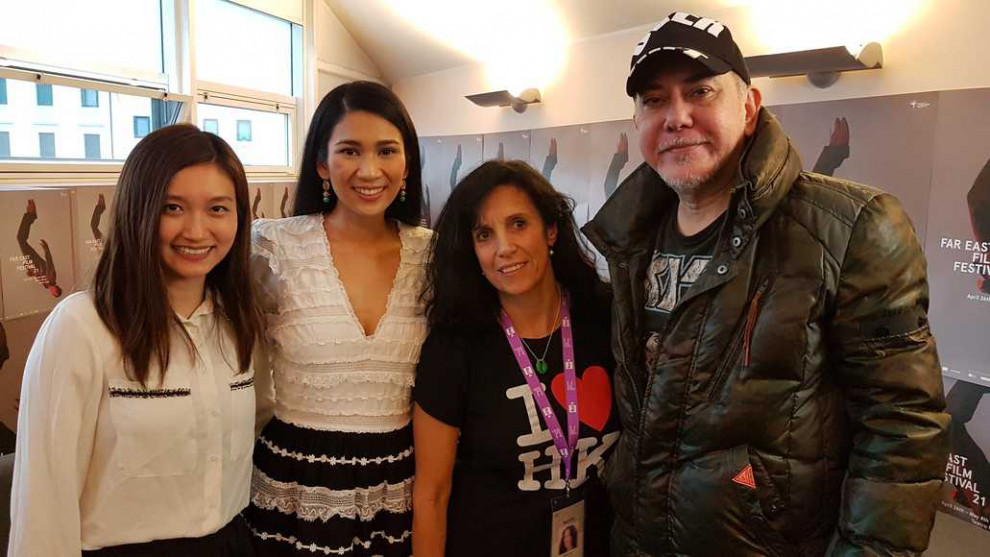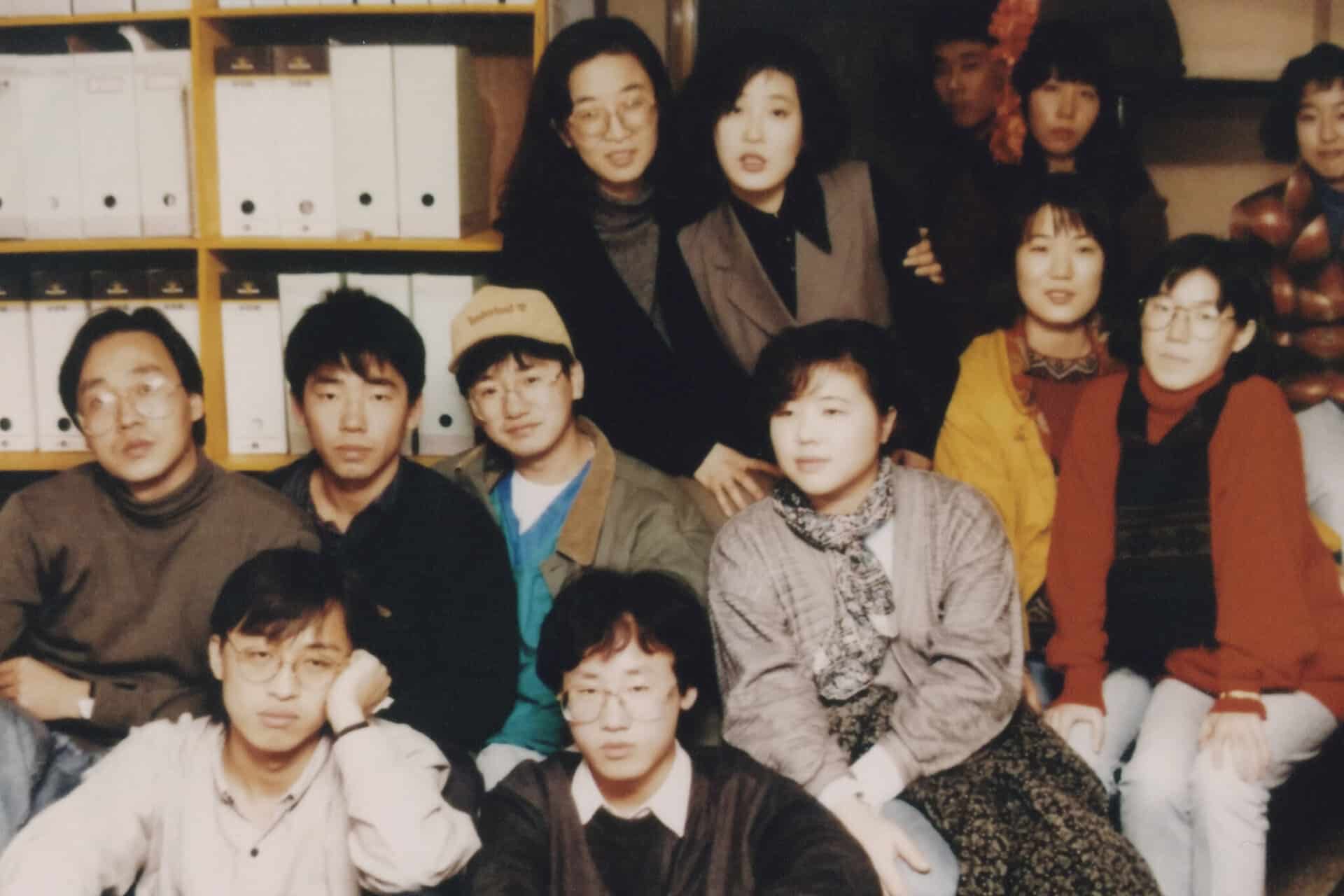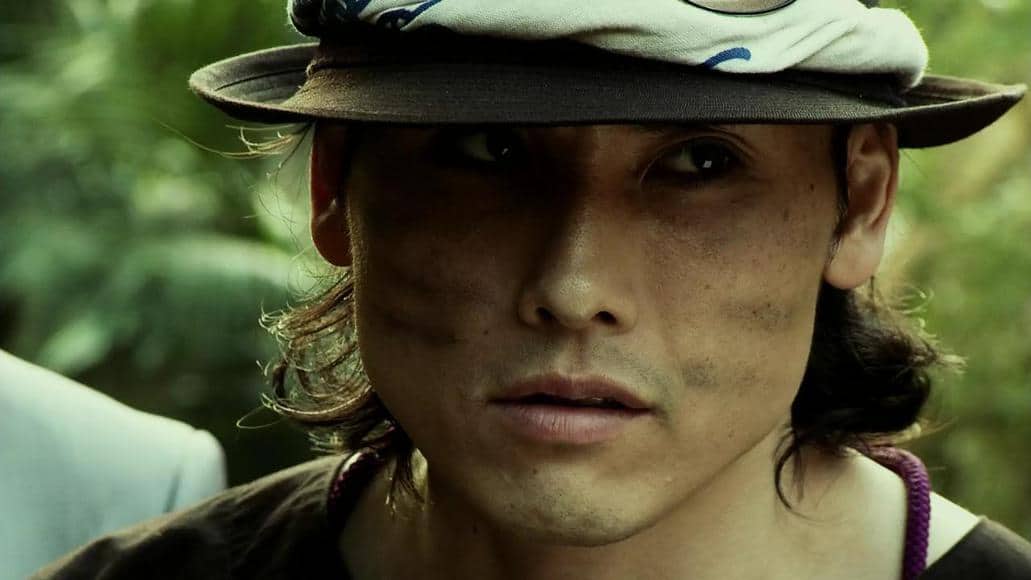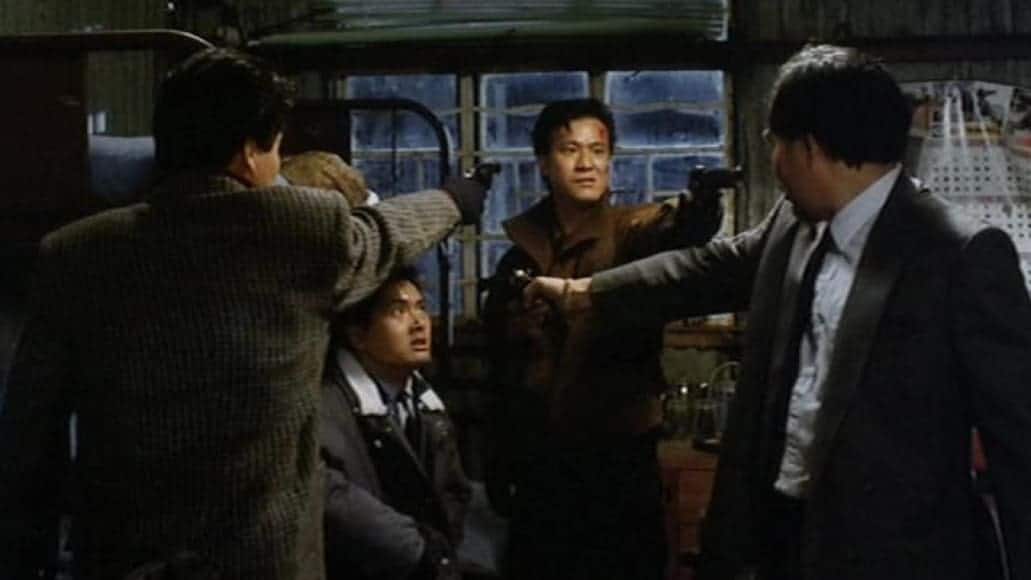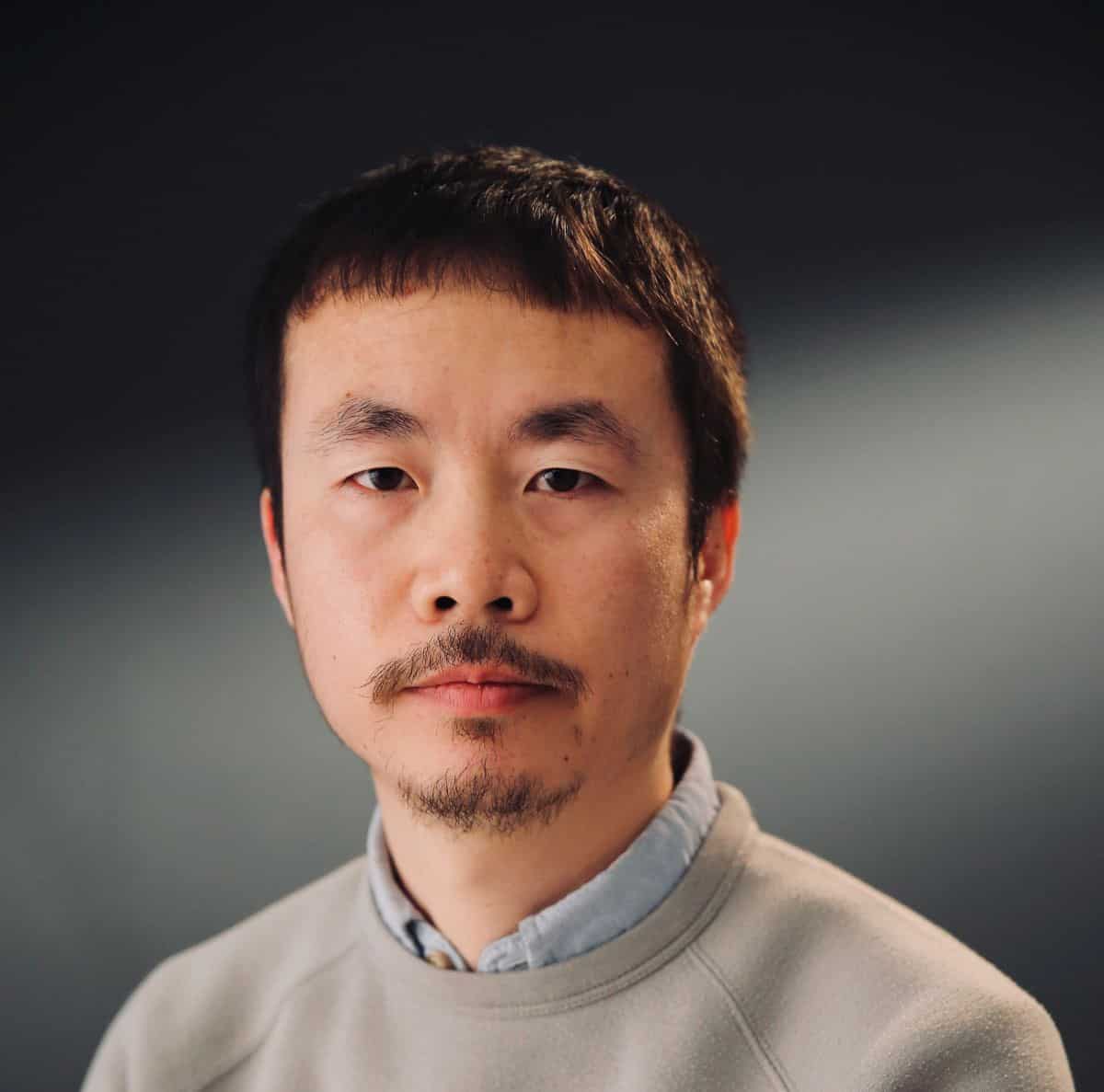First-time director Oliver Siu Kuen Chan was born in 1987. After making the short film “Children”, about a Christian couple dealing with the consequences of pre-marital sex, as part of the 2015 Freshwave program, the director won the scriptwriting competition and funding scheme First Feature Film Initiative (FFFI) and was given limited funding to realize “Still Human”. So far she has won Best New Director in both Hong Kong Film Awards and Asian Film Awards.
Philippines-born Crisel Consunji is a trained stage actress and singer, and she is running early childhood education centers in Hong Kong. She made her debut in “Still Human” and her performance earned her a nomination as Best Actress and an Award as New Performer at the Hong Kong Film Awards.
Anthony Chau-sang Wong (Anthony Wong) is a Hong Kong actor and celebrity with more than 200 titles in his eclectic Curriculum Vitae, including action, comedies, horror and martial art movies. Frequent collaborator of Johnnie To and Herman Yau, he has a collection of Awards and Nominations and with “Still Human” he won Best Actor at the Hong Kong Film Awards. Mr Wong was at the Udine Far East Film Festival 21 also as the recipient of the Golden Mulberry Award for outstanding achievement, to reflect his contributions to cinema over 35 years. Moreover, “Still Human” won both the Udine Audience Award and the Black Dragon Award.
On the occasion of “Still Human” screening at Udine Far East Film Festival 21, we speak with them about diversity and its representation in Hong Kong cinema, how to persuade a big Star, the research and preparation behing the movie and we also had lots of laughs.

How did you come up with the idea to make “Still Human”? How did all start?
Oliver Siu Kuen Chan: I think I had this idea in 2015 and it was just random, I just saw in the streets around my neighborhood a guy I know who is on the wheelchair and he had modified the wheelchair and the girl was standing on it and basically this guy was driving her around, so, I thought their interaction was very sweet and it made me really curious to know what their relationship could be.
But besides the fact that they are a wheelchair user and a domestic worker, I wanted to point out that anyone in any circumstances they are facing in life, have the right to pursue something good like dreams, friendship or family love, something like that. Anyone deserves that.
My goal was also to make people not thing diversity is a bad thing, not to make people think people in this situation, in wheelchair or minorities are pathetic. This is some kind of very bad generalization, the so-called “these people”. But they are not “these people” they are “us”, they are just everyone. People have different destinies, they run into different lives. But if we portrait them as sad – yeah, maybe audiences will cry because they're sad – but that's the end. You don't make any improvement in the industry; no difference in the fellows of the audience. So I think that was my main goal, it helped to do a lot of research and I gathered stories that are bright, stories that are sad, I got the whole picture and I have tried to integrate everything in the story. That's what I want to present to the audience as well.
Despite Hong Kong being an international city, its movies don't show much diversity. This film shows another side of Hong Kong.
Anthony Wong: I agree, HK is an international city but rarely there are stories talking about other people in HK. I think there should be more films like this one, maybe next time someone should make a movie about the Indian community, that should be interesting.
Crisel Consunji: I think it is interesting to see that the narrative is evolving. I think it's just a start, an impetus for people to start talking, because I don't think a lot of people know how to respond to it. People tend to generalize ethnicities, they group Filipinos together, Indians together, but there are lots of sub-groups within the groups, they don't know the difference between Indian and Pakistani and that goes back to what I was saying, I have the feeling that people sometimes get conscious asking questions because they are afraid they may offend some sensibilities because they don't know exactly how to connect with a different race.
Oliver Siu Kuen Chan: Also, the part of HK the film is set is actually where I grew up. I used it because I really wanted to show where real people or let's say the majority of people in HK lives, instead of the areas you always see. They are shown too but I wanted a variety in showing different sides of Hong Kong

Can you all tell us a bit more about the research that went into the film and the preparation for the acting?
Oliver Siu Kuen Chan: Everybody was very supportive, I went to many associations in Hong Kong, which support wheelchair users, and we actually got to talk with the carers. When I was there I met a very tiny lady, even shorter than me, caring for a big tall man, bigger than Anthony, and she was very proud when she told me: “ I've never once in 10 years made my boss fall on the floor” and I was like: “ok, I'm going to put that in the movie!” That was an inspiration. The main inspiration for me was the group of wheelchair users I met, they had lots of humor about their life, they were telling me of their tours and picnic they go to and that if the bus stop abruptly they all fall on the floor and they were making fun of it and laughing, saying: “Oh, we are all like potatoes rolling on the floor”. It was very different from the general perception of disables being sad and crying. It was very impressive to see them sharing all the bright sides and the challenging sides of their lives. We also joined some other domestic workers that turn into photographers on Sundays. They still work as domestic helpers Monday to Saturdays but in their Sundays off they bring out the cameras and take pictures around to express their feelings and one of them is actually the one who brought photography to the others, and she let us use her pictures in our movie. Meeting all these people really helped a lot. Although the story is original, I put lots of details I learned from people.
Crisel Consunji: I didn't see it as an acting project, I saw it as an empowerment project for the people I represent and I feel that I actually prepared for this 15 years ago. I have a master in Political Sciences and I studied migrations and you can tell Philippines biggest export is our people and it's a sad reality. So, when I got to Hong Kong, I was really interested to understand how migrants feel, how they live. And so, I immersed myself and in the process I thought I was doing community work, but actually I was the one being shaken because I realized they need so much more in many ways than I did. I was doing a lot of community work and doing some workshops in financial literacy and confidence and empowerment. And one of the projects I did was actually to do a drama workshop for them to tell stories. And like Oliver said, the stories that came up were not the stories that you'd expect. It wasn't about “poor me or my life is bad”. It was about empowerment, and many of them said, “I'm here for a reason and I want to find my goal. And I want to make something of my life.” And that's when I realized a lot of their stories were basically at the bottom, at the core, just like yours and mine. It's about problems with family, with the people they love, with marriage, with money, with what happens next in their lives. So, I believe that when I got to this project, I just had to remember all the stories and realize that I was not any different from them. All I had to do was to stay true to the values that they shared with you.
Anthony Wong: (Looking in awe of her speech) I'm starting to admire you! (everybody laughs)
Before my mom passed away, the last 10 years of her life, she was in these conditions almost like the protagonists. She was on a wheelchair, she was not mobile, and she was sick. Since I've been taking care of her for that 10 years, I really familiarized with that situation and I learned a lot from that. Acting as a disabled person was very easy, you just sit there and don't move. Only using your head to act. We call it the British-style acting (Everybody laughs)
And then about the behavior or mannerism or even talking style, I have picked up a lot from one of my friends. He is a working-class guy and he has a peculiar way he speaks, the way he chose the words and that kind of manners. I pick up that from him. The director is also the writer of this film and so she had a very clear vision and a direction about what she wanted. So as an actor, when I was on the shoot, I just had to really follow her lead to deliver what she wanted. So, the execution implementation was not that difficult.

What can you tell us about casting a big star and a newcomer together?
Oliver Siu Kuen Chan: When I was writing the script, I wasn't thinking about any actor in particular but then, when I finished it and I proofread it I thought: “you know, what? I've just wrote Antony Wong! “. I don't know why but he always acts in roles that are not like him, like violent or rude, he always portraits those crazy, violent guys, but when you see him in interviews he comes across as a humorous and kind person and I thought that maybe the audience would like to see him like that, fragile but at the same time strong and kind. Also, there are lots of swear words in the film but when he swears it never sounds rude. He is the only one that can do that, his swearing makes you happy!
Anthony Wong: I am a serious guy, but I am funny.
Oliver Siu Kuen Chan: He is seriously funny!! I didn't know Anthony in person back then, so I asked around my friends and other directors to get his contacts and I sent a lots of information about the project, the script, the synopsis, myself, my resumè, so many details! I wonder if he ever read them, but he contacted me within 15 days, he was so generous, he said: “I know you have no budget, I'll just do it for free”, so that was very quick, but then we spent over 1 year looking for the right actress. My producer wanted me to go through all the Filipino professional actress in Hong Kong but then I thought that the story is about dreams and what about if we find a Filipino girl in Hong Kong who has a dream that she is looking to pursue, maybe an acting career and she haven't had a chance, what about if we find someone like that? Could I find her? That is why I expand the casting on social media, and I got so many people! It was real luck! I am very grateful for my cast.
Crisel Consunji: I honestly felt morally compelled to be part of it because it's very important to claim the narrative, now it's the time that the stories of people at the margins are brought up to light and people are listening, and I really wanted to be part of the process. I felt this director was going to treat our story with integrity and with respect and finesse because there's a tendency in people to over-generalize without listening to the actual stories of the people in the margins, they often come out with a general idea of what “they think” those people feel. I really felt she had a goal, she is very empathetic and that was what moved me because, to be honest, I was afraid, I didn't have experience in this, but when I left, I realized she was really out to send the message and I wanted to be part of that project.
And what did appeal to you of this project, Mr Wong?
Anthony Wong: Maybe it's because she is pretty (laugh) But maybe because of the story, I liked the story. In my opinion, Hong Kong needed a film with a main character from Philippines or India so when I received the script, I saw the co-star was Filipino. This is the main reason why I picked up this script, because it was a good way to portray Filipino people in Hong Kong. She (the director) didn't have a lot of money and she couldn't afford me. I cannot lower my fee, so I did it for free. (laugh) But if the movie makes money, I get some profit sharing.
Crisel Consunji: I had no idea who Anthony Wong was. (laugh) Now I do (more laughs) I saw yesterday! (She refers to the big crowd of fans in Udine)
Oliver Siu Kuen Chan: I told Crisel: “there is a big star come into our projects” and she never understood how big that was until, in the middle of shooting one day we were on the street and so many people were screaming: “Oh Anthony!”, surrounding him and taking photos. There was a long queue, interrupting the shooting, trying to take photos with him and she was like: “Wow, he IS very famous!!”
But now she has a long queue too!

You secured such a big star like Mr Wong very easily and also you get Fruit Chan to produce the film. That make it sound like everything was very easy in this production. Is it true? What was your major challenge or thing that all of you found difficult?
Oliver Siu Kuen Chan: For me I think the big challenge was filming with very limited resources. We had a limited budget and we weren't allowed to get more funding. That's the problem…
For the First Film scheme? (First Feature Film Initiative – FFFI – A Hong Kong scriptwriting competition scheme for first feature funding)
Oliver Siu Kuen Chan: Yes, they want us to be original and not been affected by commercial funding. So we could not get more money, that is the FFFI deal. I think this movie cost only 8M HK dollars, so I had to go around saying: “Sorry I have no money”. Also, the crew was a bit problematic, lots of them were very new like me and Crisel, at their first feature film too, the production manager and my music composer were first-timers, and my DOP, my costume designer, my art director too. So I had to manage lots of people that, like me, were not familiar with what they were doing, so we had lots of struggle on the production side, but I think we did ok.
Crisel Consunji: My challenge was 19 shooting days within 20 days. That was physically exhausting! And it was cold! Maybe 9 degree C for you is not too cold, but for us in Hong Kong is freezing, when you see my pale face in the movie, it's because I was really cold!
Oliver Siu Kuen Chan: Yes, these two people are so busy! When we tried to arrange the schedule for shooting, I had to sit and talk with them to fit them in … in the end we only had 19 days. I couldn't even cut his hair because he had to do continuity for the TV drama he was filming at the time, and we had to shoot day after day, even on Christmas day, it was really challenging, it was mental!
Anthony Wong: Well, my answer is … nothing. Nothing was challenging, it was really easy for me, we didn't have to work at night…
Oliver Siu Kuen Chan: He doesn't like working overtime at night.
Anthony Wong: Yes, night shifts are a nightmare. But here I didn't have to do it, I didn't have to do wire stuff, we had a beautiful director, a gorgeous actress who acts really well. For me it was easy.
Going back to the First Film scheme, what do you think of the support in Hong Kong today for new filmmakers?
Anthony Wong: I don't think they are new at all! You feel they are so experienced already. Oliver has already mastered a lot of technical ways of shooting, Crisel has been acting or performed since she was 10 years old. I feel like I'm working with some con artists! (He laughs) They're so good.
Oliver Siu Kuen Chan: I'm grateful for these kinds of schemes. I think they see what is missing in the industry. Because the star writers and producers all went to mainland, they don't spend time in Hong Kong and the young generations don't get the opportunity to learn next to them. Lots of us were like floating in the ocean, not knowing where to go. And then the governments and some filmmaking companies saw that, and they started making competitions like FreshWave and when they saw that these young people were making good short films they started this FFFI initiative and it's very good. It's not just about the money, they actually give follow-ups through all the whole process. My judges on the panel were Philip Yung Chi Kong, Yau Nai-Hoi from Milkyway (Johnnie To's main writer) and Mabel Cheung Yuan-Ting, they're all fairly reputable directors in Hong Kong and they did not just stop at the panel. They actually follow through and they helped a lot throughout the whole thing. It's like having mentors in Hong Kong again. So it's a very good thing.
Anthony Wong: I actually told those funding organizations or departments in the government that 3 million Hong Kong dollars couldn't make any good movie. Unless everybody did the work without getting paid! It seems like they have changed it now and raised it to 5 million. We all know the Hong Kong cinema industry has changed a lot since its old times. In the past, Hong Kong produced over 300 movies a year, now we got about 50 new movies a year, about 20 of them made by new filmmakers. Yeah, a lot of political reasons, so there are a lot of challenges in making movies. But there is still a group of very passionate young filmmakers bravely tackling issues or topics they're passionate about, not necessarily political topics, but stories they really feel compelled to tell. So it's very admirable.

“Still Human” is a film about the necessity of following your dreams and I would like to ask to the three of you if what you do now is actually what you dreamt to be doing.
Oliver Siu Kuen Chan: Luckily for me it's a dream came through making this film. I just hope that I can continue making films; that would complete my dream.
Crisel Consunji: I think I really like connecting with people, so in a way this is. But who knows, dreams can evolve and change, sometimes what you start doesn't entirely go through, who knows, I will let you know (laugh)
Anthony Wong: I pray every night I can get another job, working in England again!
Before we wrap up, could you let us know what the next project is?
AW: Theatre for me. A stage performance, only a small part.
Oliver Siu Kuen Chan: I'm writing a TV series for a local network and I'm also going to write for my next feature film.
Crisel Consunji: I might hang up the coat on performing, but maybe … who knows?
Some parts of this interview are taken by the press panel, moderated by Tim Youngs (Hong Kong Selection Consultant of FEFF)


